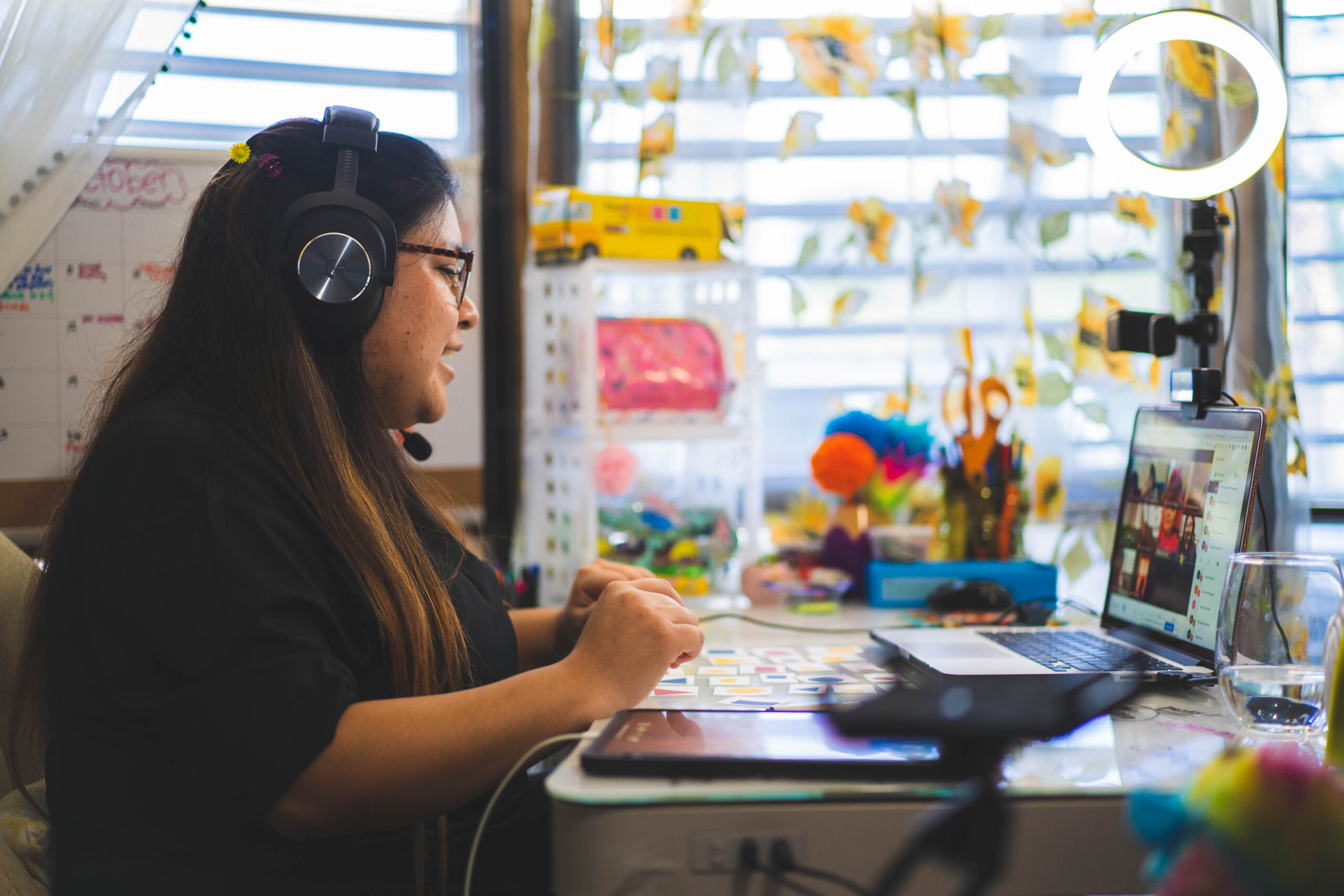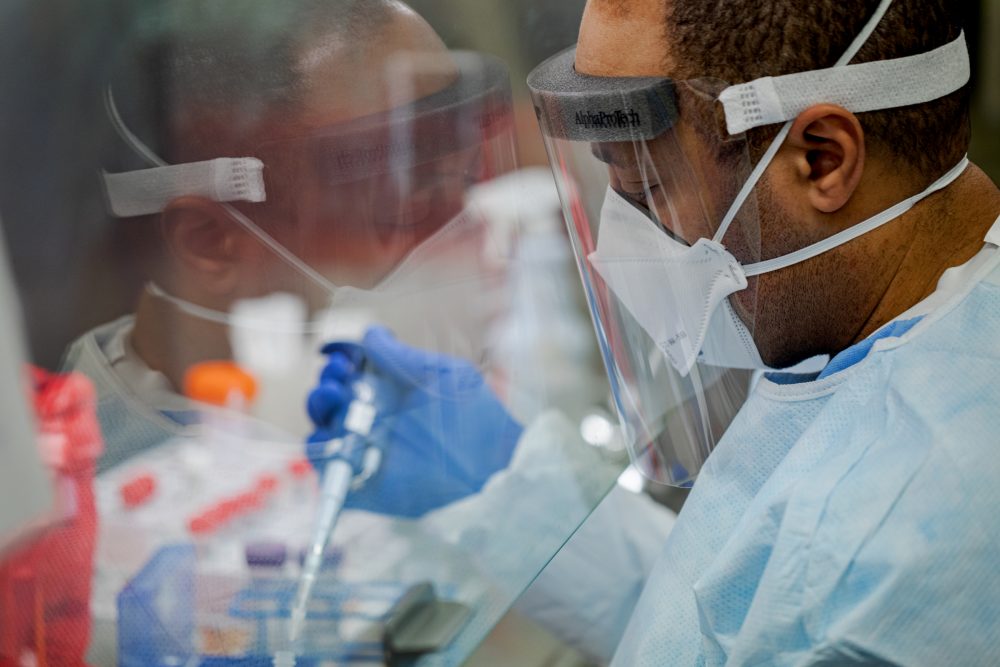Announcing $1.65 million in domestic COVID-19 Fund grants
In the 11th round of U.S.-focused grantmaking from the CDP COVID-19 Response Fund, we’re focusing our grantmaking on: Economic impact (including affordable housing access). Mental and behavioral health. Educational digital divide and the learning loss spawned by COVID-19. Advocacy support for migrants and frontline workers. And, as always, we want to amplify the voices of […]

In the 11th round of U.S.-focused grantmaking from the CDP COVID-19 Response Fund, we’re focusing our grantmaking on:
- Economic impact (including affordable housing access).
- Mental and behavioral health.
- Educational digital divide and the learning loss spawned by COVID-19.
- Advocacy support for migrants and frontline workers.
And, as always, we want to amplify the voices of marginalized populations to support access to resources needed for recovery. Here are the latest nine awards totaling $1.65 million:
- American Nurses Foundation (ANF) – $250,000 to support the Well Being Initiative providing mental health support and care to nurses across the United States. This is the second grant we’ve awarded to ANF because we know the need for the continued support of these critical frontline workers. As we experience our fourth wave of the virus in the U.S., fatigue (both physical and mental) is setting in. We see a shortage of nurses, too, as many leave the profession out of frustration and exhaustion. By collecting information about the needs of their membership and then directing resources to serve those needs in easily digestible ways, the ANF is helping improve outcomes, not just for those they serve directly, but also for those these nurses are serving.
- DonorsChoose – $250,000 to match teacher projects to support students most affected by the pandemic, due to learning loss and other factors. With DonorsChoose, we help fund projects requested explicitly by teachers to support them and their students. DonorsChoose identifies projects in low-income, predominantly communities of color-serving schools with a preference for projects focused on elementary school-aged students that our matching funds can help. Funded projects are also limited to states where we know the effects of the pandemic on schools and children are continuing to be particularly challenging. The states covered have significant surges and high classroom caseloads, with little support from local and state leadership for the schools, students and teachers. We know that learning loss and learning gaps are significant because of remote and hybrid schooling, among other issues brought on by the pandemic. DonorsChoose allows us to provide funding at the local level and make a significant impact.
- Enterprise Community Partners – $250,000 to support Enterprise in preventing evictions in Louisiana, Georgia and Mississippi. We closely watch the seemingly never-ending issue of a lack of affordable housing as a common thread through all our work in disasters. Access to affordable housing is something that is lacking in blue sky days, never mind when there’s a global pandemic with devastating economic impact. As it became clear that evictions and homelessness resulting in unsafe living conditions are problems for many of the most at-risk, we were relieved to see the Center for Disease Control and the federal government issue an eviction moratorium. Subsequently, billions of dollars have been designated to support renters and others as they try to stay in their homes. But we know that those dollars are bottlenecked at the local and state level as local agencies try to work with social service organizations, renters and landlords to distribute these funds most equitably and efficiently. We identified several states that were having the most difficulty getting resources dispersed efficiently. Enterprise sets the standard for working in the housing space and finding unique ways to best address the problems facing those in need. Their Eviction Prevention Toolkit and other tools have proven effective in supporting getting the funds on the ground and working best for each community. And they are expanding their work and focusing on three of the states we know have the highest needs and the least efficient models for addressing those needs.
- National Alliance on Mental Illness (NAMI) – $200,000 to support the expansion of the NAMI helpline and provide continued support for NAMI’s frontline wellness programs. Initially, we granted to NAMI in the third round of COVID-19 funding more than a year ago. The need for their services exploded during the pandemic. With this grant, we continue to support expanding their helpline to include increased hours and new functionality, like texting, to meet the people where they are. More operators answering phones and text messages and offering additional resources are critical as the need for mental health support continues to be high. Additionally, funds will provide grants to at least 15 local NAMI affiliates to address the needs of frontline workers, a demographic group we know is struggling as the pandemic drags on. Finally, NAMI will expand the educational resources it offers, providing health care professionals and first responders with support for their learning around addressing their mental health and the communities they serve.
- National Domestic Violence Hotline (NDVH) – $150,000 to support the National Domestic Violence Hotline as they expand hours, train new advocates and develop data collection and analysis of the impact of the pandemic on domestic violence victims and survivors. This grant continues to expand previous funding provided to the National Domestic Violence Hotline in our seventh round of grantmaking for the COVID-19 Fund. They data collection and analysis determined an increased need for their services, due to the pandemic. With previous CDP funding, they answered nearly 33,000 additional calls, chats and texts. By supporting expanding the capacity of the trained advocates to answer calls, chats and texts, the NDVH will be better able to serve those most in need. They will also use the funding to train even more advocates and expand and continue the data collection to determine the actual effects of the pandemic on those experiencing domestic violence.
- National Domestic Workers Alliance (NDWA) – $100,000 to provide expanded capacity for the National Domestic Workers Alliance to continue advocating for better standards, safe working conditions and more for their members and other domestic workers across the U.S. We initially funded the advocacy work of the National Domestic Workers Alliance during our seventh round of grantmaking. From the beginning, we identified frontline, domestic, essential workers as a population most disproportionately affected by the pandemic. Domestic workers are primarily women, women of color and immigrants who struggle with food insecurity, financial insecurity and housing insecurity. Often, because of immigration status or because they’re paid “off the books,” they do not qualify for federal relief. The NDWA will expand its capacity for advocacy for safe workplaces and equitable access to resources and vaccines. And they will work to ensure workers can return to work safely, with access to appropriate information and vaccines. Ultimately, the hope is to engage with local, state and federal governments to raise workplace standards and reduce the vulnerability of these workers.
- RAICES – $100,000 to provide legal representation for unaccompanied minors arriving at the border because of the pandemic in their countries. “The coronavirus knows no border.” This global pandemic has created a sharp increase in migrants and immigrants seeking refuge in the U.S. because of the economic downturn and increased dangers in their home countries. This increase includes more unaccompanied minors from several South and Central American countries. RAICES began its pro bono legal work with these unaccompanied minors in 2009, but they’ve seen a surge in need for their services and an expansion from serving them beyond Texas. This grant will help build and sustain their work capacity despite the pandemic-related increase in demand. RAICES is a previous COVID-19 Fund grantee, having received funding during the sixth round to support their work to support COVID-19-related mental health needs of immigrants and refugees in Texas.
- Teach for America – $150,000 for Teach for America to help fund the Ignite Fellowship, which will use college students to support K-12 students affected by the COVID-19 pandemic learning loss. Teach for America’s Ignite Fellowship addresses the real needs of students while also providing assessment and analysis to help inform the program in real-time. They essentially support two populations by providing interactive tutoring and instruction from college students for those needing additional educational support. Teach for America has a long history of improving educational opportunities for marginalized and disproportionately affected people.
- Vibrant Emotional Health – $200,000 to support expanding and sustaining the capacity of Vibrant’s Crisis Emotional Care Team as the needs for their services increase due to the ongoing pandemic. Vibrant received a previous grant from the COVID-19 Fund to expand its mental health services for the pandemic. This funding allowed them to meet the increasing needs for mental health and crisis support that directly resulted from this crisis. And, as we continue through the second year of this pandemic, we see an increased demand for mental health services. Vibrant is a critical service provider and offers services to government agencies, health care providers, communities and individuals who have experienced trauma and stress as this crisis drags on. CDP funding will support expanding and sustaining their capacity to do this vital work.
Thanks to all donors of the CDP COVID-19 Recovery Fund.
More like this

For equitable recovery from COVID-19, we can’t leave LGBTQ+ people behind

